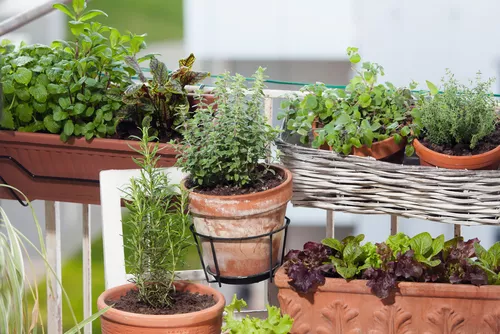Wasp plagues occur again and again in late summer. Those who like to eat outside when the weather is nice can be driven to desperation by the annoying stinging insects. Luckily, there is an effective remedy that enriches the kitchen garden at the same time: fragrant herbs.
 Wasps don't like strong smells
Wasps don't like strong smells
Gently combat beneficial wasps
A preliminary remark: driving away wasps in the garden is not only a rather difficult matter, but also a criminal offense to a certain extent. Because wasps are officially protected and must not be willfully disturbed, harmed or even killed. This is also fully justified in view of their ecologically important and useful function. In your gardener's interest and to avoid penalties, you should gently keep insects away from your garden and patio.
Unpleasant for wasps, pleasant for us
Proven ways to lure wasps away from your green oasis are overripe fruit, raw meat or sugar water. You can also make the wasps mad in your garden with certain smells, so that they might not even settle in your area. The stinging insects have a very sensitive sense of smell, so they not only smell the pastries on your coffee table immediately, but also prefer to run away from smells that are less tempting for them.
In order to have a wasp-repellent scent source in the garden permanently or at least throughout the summer, some types of herbs are excellent. These include above all:
- basil
- lemon verbena
- incense plant
Best of all, these aromatic herbs can be a great addition to you and your kitchen.
Wasps, on the other hand - and some garden pests too - wrinkle their noses at the aromatic, fresh, spicy smell of basil. They also can't stand ethereal-lemon scents. Lemon verbena, which is wonderfully suited as a tea herb, exudes a particularly intense scent. But lemon balm is also effective and can be used for salads, desserts and teas.
What can also drive away wasps is the frankincense plant. It is not an edible kitchen herb, but rather a leaf ornamental plant. With its scent, which is very similar to real frankincense, it is effective against wasps and other pests such as mosquitoes. The disadvantage: the intense smell takes some getting used to, even for some human noses.